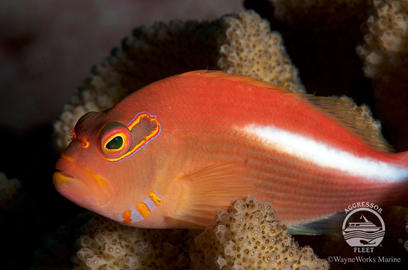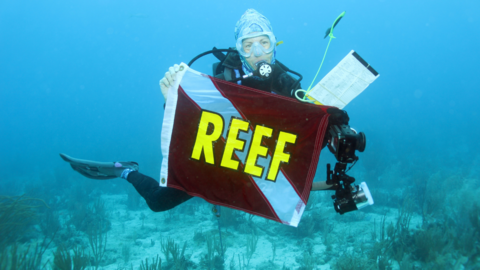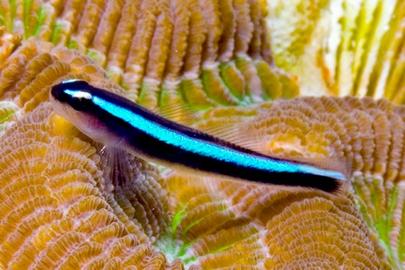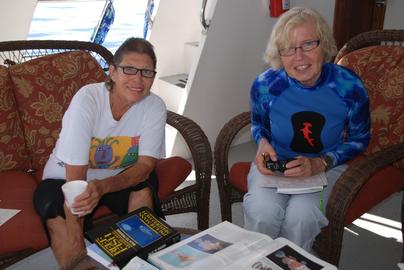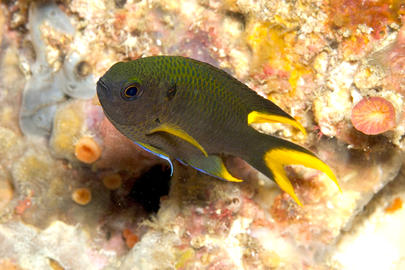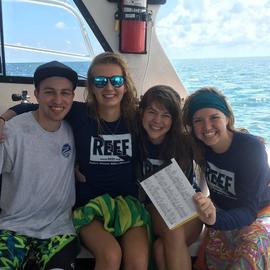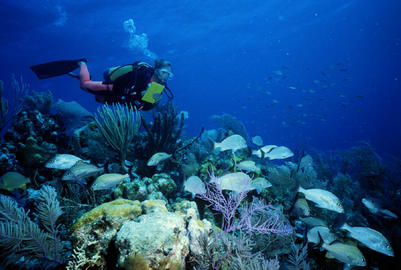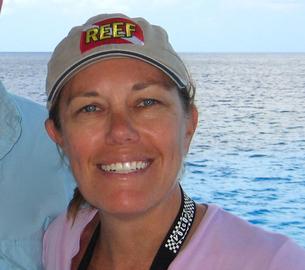Aloha! From wrasses to butterflyfish, discover the many endemic marine species of Hawaii while diving the volcanic underwater reef topography around the Big Island, including favorite sites such as Au Au Crater, Amphitheater, and Turtle Pinnacle. A fantastic backdrop of lava flows will provide a picturesque landscape for surface intervals aboard the comfortable Kona Aggressor II liveaboard.
Predation by the invasive Indo-Pacific lionfish impacts native fish populations within the Caribbean region and threatens to expand further into Brazil and the Mediterranean. Identifying the range-restricted native fish species with high predation vulnerability in these areas ahead of the invasion front combined with the knowledge of the time a lionfish population typically takes to reach dangerously high densities could help conservation planners attain positive outcomes and reduce biodiversity loss.
This year we are celebrating the 30th anniversary of the REEF Volunteer Fish Survey Project (VFSP). We are amazed and in awe of how the program has grown, and are so grateful to the over 17,000 volunteers who have conducted surveys through the years. The first surveys were conducted in July 1993 in Key Largo, FL. Since then, the VFSP has been expanded to waters around the world and has been modified to include invertebrates and algae in colder temperate waters. The database is approaching 300,000 surveys!
Attention Tropical Western Atlantic fishwatchers -- the Neon Goby has been split into two species. The original Neon Goby, Elactinus oceanops, retains the common name and is geographically known only from So. Florida and Flower Gardens and Alacran reefs in the Gulf of Mexico. This goby can be distinguished by the bright neon blue stripe from snout to tail with a sharp blue-against-black edge.
REEF members are at the heart of our grassroots marine conservation programs. Over 43,000 divers, snorkelers, students, and armchair naturalists stand behind our mission.
This month we feature Patricia Broom (REEF member since 2004). Pat is a member of REEF's Advanced Assessment Team in the Tropical Western Atlantic and has conducted 277 surveys in three of REEF's regions, including some of the first in our newest region, the South Pacific. Here's what Pat had to say about REEF:
We are encouraging all REEF surveyors in the Tropical Western Atlantic region to be on the lookout for a new non-native fish! Researchers from the University of Veracruz have documented a new non-native species in the southwestern Gulf of Mexico with the potential to spread throughout the region. Sightings of the Regal Demoiselle (Neopomacentrus cyanamos) have recently come from the nearshore reef systems south of Veracruz, Mexico. The species is native to a broad region of the Indo-Pacific and Red Sea.
This summer, REEF will host our second Reef Fish Field Methodology Course in Key Largo, Florida. This one week hands-on course is designed for college undergraduates and recent graduates aspiring towards a career in marine biology or a related field. The course covers commonly used tools and techniques for visual assessments of reef fishes.
REEF eclipsed a milestone this week when the REEF Volunteer Survey Project Database passed the 120,000 survey mark. This represents over 150,000 hours of underwater survey time from our volunteers. The achievement comes almost 15 years to the day when the first REEF fish survey was conducted off Key Largo, Florida, on July 17, 1993. Today, the program is going strong throughout the coastal areas of North and Central America, the Caribbean, Bahamas, Galapagos Islands and Hawaii.
Key Largo, Florida. The Reef Environmental Education Foundation’s home study DVD, Reef Fish Identification Florida Caribbean Bahamas, A Beginning Course has been awarded a Bronze Award in the 2008 Telly Awards competition in the Non-Broadcast Education category.
REEF proudly names Heather George as our 2011 Volunteer of the Year. Since becoming a member nearly a decade ago, Heather has conducted 192 REEF surveys throughout the world and is a member of the Advanced Assessment Team in the Tropical Western Atlantic and Hawaii. In 2010, Heather joined the volunteer research team for the Grouper Moon Project. Through the years, she has conducted fish identification trainings for dive shops and aquaria and has led several REEF Field Survey Trips.

